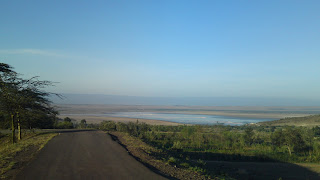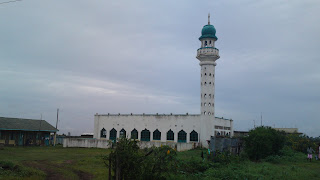All about the Nairobi Stock Exchange, USE, DSE, LUSE, GSE, FTSE & KENYA. (Please see disclaimer at the bottom of the page)
Monday, November 22, 2010
Kenya's next leader -a sweet talker or a deliverer?
Wednesday, October 27, 2010
Kenya's adoption of the "spend now, pay later" model
Like the Tatu City idea, but who is minding the ecosystem
Monday, October 11, 2010
RIP Nelson Muguku- Equity's largest individual shareholder- an inspiration to me
He has been an inspiration to me. May God console his family at this time.
The early bird catches the fat worm is the golden rule of investing
Wednesday, October 06, 2010
Who is your uncle? Africa culture goes missing...
You see, according to Western definition, the only person that can be called an uncle is the brother of either your parents and at a stretch (if the sun shining . In Kenya (and I believe a significant portion of Africa) however, the definition for your uncle is extended to include your parents cousins. When I explained this cultural context, there was silence. the sort you get when you are into subjects where the majority are ignorant.
Africa culture is with very few exceptions, ignored the world over. On the other hand since 1884 and beyond, we continue to gobble up other cultures.
Culture is important because it creates cohesion. It gives one roots and identity. Because of these and other important features, colonising nations have either used culture as a colonising tool or a signal that they were in control. Part of reclaiming your nation is to instil your culture.
Monday, September 20, 2010
NSE on track for a 4,800 finish
- With the katiba referendum successfully out of the way, the only other chink in the political armour might be the ICC investigations, but I see those getting bogged down mainly because this GoK doesn't have the cojones to deal with impunity. Thus no nervous investors.
- Economic fundamentals: The structure of our economy is such that domestic demand plays the key role in the economy's outturn. Domestic demand is driven by disposable income and credit build-up. Disposable income is derived from income less taxation (which is fairly constant) less BAU spend. This BAU spend can be very volatile especially if prices of daily supplies go up. They did in 2008 and the NSE tanked. Once it started raining, Kenyans could spend more on investing and savings. More importantly manufacturers could see returns on their investments, thus economy starting growing again. Should rains continue in later 2010 and early 2011, NSE will search 5300 by March 2011.
- Western economies: Are set for a low growth until 2012 at least. This maybe to NSE's advantage as many fund managers such for alpha will have to go beyond over-priced commodities and buying bonds from heavily indebted sovereigns.
- IPOs: This is not really a driver but tends to be a firm signal that the NSE is buoyant and on the up. So far, KenGen's OSF, NSE IPO, the IPo by the baker, NBK's OSF have all been talked about but not delivered. By my reckoning, the NSE needs 75 counters to really catch the imagination of joeblogg type of Western funds. Nobody wants to pay a P/E of 15+ and having a few more counters will drive P/Es to attractive levels.
Tuesday, September 07, 2010
Charterhouse bank - the money-launderer's dream bank
- Money laundering: In any story you read about money laundering in Kenya, one of the best examples you get is that of Crucial properties which held a foreign currency account with Charterhouse bank. The company owned by among others Humphrey Kariuki (Wines of the World; Dalbit Petroleum and I think former proprietor of Green Corner in Nai) was investigated by CBK after it received $25m from either Leichstein or Jersey (depends who you ask). CBK reckoned this was drug money. Charterhouse refused to provide details and the whole thing went to court. The judge allowed Charterhouse to go scot free. In the meantime, the CBK team doing investigations discovered that Charterhouse had like 200 customers with 20,000 accounts. Many lacked basic know-your-customer information, but were clearly opened for the the purpose of layering where you disguise the source of your money by making multiple transactions into different accounts. That money-laundering only became illegal in Kenya this year is neither here nor there. When CBK delved it discovered the following other crimes none which have ever been successfully prosecuted because CB and related players pay well.
- Tax evasion: Charterhouse helped Nakumatt (had a 10% stake in CB), to effectively under-declare it sales which meant that its tax payments to GoK were something like Ksh50m compared to Ksh500m for the smaller Uchumi! Effectively, Nakumatt and associates had not paid taxes amounting to Ksh18bn going by the CBK findings. How? Suppliers were paid into their CB accounts where they would either ship the money abroad or shift into several other accounts within CB. When KRA came, it started chasing the account holders. Those cases are still pending.
- Large exposure breaches: Means nothing to most of us, but most banks that have either been conduits of crime or played with the idea of collapsing always do so because they breach larg exposure requirements. In layman terms, no one customer should more than 25% of a bank's loans or deposits. Reason being, if the customer collapses and goes to heaven tomorrow, the bank will more or less follow (though presumably not to heaven). Nakumatt and associates probably did something like 50% of all CB's business. CB also broke banking rules on lending to employees;
Monday, September 06, 2010
County Kenya - making your county viable
Wednesday, September 01, 2010
An analysis of the 2009 Census figures
- Nai has the highest proportion (14%) of its young going to University. Central is next with 2.6%. Vast gap and I'm pretty sure some of it is explained by the fact that Nai houses more single people than children.
- 2 of the largest counties (outside of Nai), are in Western. Bungoma and Kakamega with around 1.7m each both have 700k more people than Mombasa. Nyeri has a similar population to Kajiado and Kwale (just under 700k).
- North Eastern hs the highest proportion of bush toilet users (63%). Unsurprisingly, Nai has the highest proportion of its population (47.7%) with main sewer toilets followed by Coast. With 5.8%. Huge gap. Only 8% of Nyanza households have piped water. Only 2.6% of households in NE (which has the highest), use rain harvesting techniques.
- Despite (or because) fo their love of mbuzi choma, Central only have 0.5m goats compared to 4m in Eastern and almost 12m in Rift Valley. Human population outnumbers each of its animals even ingoho which are only 25m. There is an economic opportunity here and I think guys need to think harder about the meat business. If you want asali, go to Eastern province where
- Surprisingly, Central has the highest proportion of households (85%) that own a radio. 62% of Nairobian households own a TV with 40% in Central doing the same. Only in North Eastern do less than 50% of the households own a cellphone. A flattening market? Computer ownership (14% in Nai at the highest and 3.8% in Coast which is 2nd), is paltry although I think cellphones have been a handy substitute.
- 42% of our population is aged less than 14 years.
Wednesday, August 25, 2010
Mobile telephony - a low margin future?
Tuesday, August 24, 2010
2012 and beyond: US/Swiss model or the Nigeria one
- an executive where only the president and his pre-nominated vp will be elected officials. The rest will be appointees from outside the political circle who will be vetted by the various parliamentary committees. This will work if you have a president who wants technocrats that can deliver in the particular ministry. The US model almost works but don't forget you can get guys like Donald Rumsifield. If done properly, we'll get a John Michuki-type in every ministry.
- County governance. This is new but it means that a lot of the current MPs will actually prefer being governors and senators than MPs. A positive because it means that we'll have a new crop of MPs. The downside is that your current MP might be angling to eat his cut of the 15% from the budget. In this respect, lets pray we don't get the dysfunctional Nigerian model but the super uber efficient Swiss one. Already in Nyeri, Elephant Maina is eyeing the governor seat to consolidate the horrible road he did in the area. Do you think any other road contractor will build roads there?
Tuesday, August 17, 2010
NSE: lull before a dip or a rise?
Monday, July 26, 2010
Yes? No? the katiba referendum summary
Thursday, July 08, 2010
Will forthcoming Katiba referendum impact NSE?
Wednesday, June 02, 2010
You can now track your shares at CDSKenya website
- You will not be able to see any of the cash you may foolishly have left lying in your CDS account. Note further that if you broker was to collapse, only your shares are 100% guaranteed. Any cash will be subject to Ksh50,000 maximum payout.
- NSE operates a t+5 days settlement system. Which in plain English means that you won't be able to see any sale/purchases made over the last 5 business days in you CDS account. This is a bit of a loophole that I am sure brokers and can exploit.
Saturday, May 08, 2010
Proposed constitution: A review
Thursday, April 29, 2010
Make voting mandatory
Monday, April 26, 2010
NSE @ 6,000 a possibility in 2011
Sunday, April 25, 2010
Greece debt mess from unbalanced economy- can Kenya learn?
Monday, April 12, 2010
Equity/HFCK boardroom myths; Mpesa in the UK
Tuesday, April 06, 2010
What lending rate should we be seeing from Kenyan banks?
- Cost of borrowing: Quite simply, a bank is gets its money from 3 sources in order of quantity; depositors, lenders and shareholders. The lenders will typically charge some internationally priced rate and shareholders are covered below. If you look at a typical Kenyan bank's balance sheet, you'll note that the largest two single items are deposits and loans. While we are can talk about the desirable type of depositor (i.e. raia like you and me who are seen as far more stickier than corporate or other financial entities), the key consideration here is the rate depositors require before they can deposit with a typical Kenyan bank. That is, the rate they lend to the bank. Per CBK, the current average deposit rate is 4.89%; typical savings rate is much lower at 1.81% and finally the interbank rate is 2.17% (its unusual for the interbank rate to be so much lower than the CBK rate in itself a sign of some dysfunctional issues). So Kenyan banks are paying 489 basis points for deposits. They are then not going to charge bank loans at anything less than 4.89% and possibly more if their borrowing from abroad (i) attracted higher interest rates and (ii) is a significant portion of their borrowing. We've overlooked the maturity mismatch issue i.e. the bank is borrowing short (you as a depositor can withdraw your funds at any time) but lending long-term (a bank can't take back its loan tomorrow). So lets say 5.5% to breakeven against cost of borrowing. But is this real cost of borrowing? What about staff costs, administration costs (IT, branches) et al. I'd say add 50bps. Thus arrive at 6%.
- Return on capital: A bank has many stakeholders, but the shareholder is the key one as they can guarantee continuity from a regulatory and financial perspective. The bank's lending rate must therefore reflect the shareholder's desired rate of return on his/er capital to keep their capital with the bank. Straightaway, you'll note that the shareholder wants the regular income in form of dividend and eventually in form of capital gains. A potential shareholder (note not a speculator), will want to keep his/er capital with a bank share for say 2 to 3 years. He/she doesn't know what may happen in those 2/3 years i.e. the risk is high, but at the end of it they'll want a return on the principal and reward in form of gains or income for keeping the cash there. The alternative would be to stick the same cash in a t-bill and earn minimum 8.75% per year with guaranteed principal protection. The bank has to deliver an annual income of no less than 8.75%, guarantee the shareholder's principal by ensuring growth in shareprice and reward the shareholder for sleepless nights. Lets say we are now at 10%.
- Loan quality: In Kenya, a bank historically relied on quality of collateral in form of a clean title deed. Many banks have learned painfully that (a) title deed may not be legit (b) may not mean much if there has to be recourse to the courts where you are asked to form an orderly queue at case number 900,001. Other forms of collateral such as shares; guarantors are costly to enforce. Secondily, the other way you judge the quality of your loan book is to have borrowers that don't already have 5 other loans. In Kenya, its not possible to tell this because credit scoring started this year and of course banks didn't share customer information. The risk of lending and guaranteeing that the loan will not go bad has to be rewarded. Add another 300bps to the 10%. Therefore 13% borrowing rate.
Monday, March 22, 2010
Why do Africans have European names?
- They were mythically told that adapting a Christian name was a mark that they had been saved and baptised and were a now a new creature with new name. Its a myth because no where in the Bible does it say that you have to change your name...
- The white colonisers got fed up trying to pronounce Wambugu, Onyancha and said we had to have European names to get jobs on their farms. There is some truth here because my grandfather said it was either that or you were called brooryfoo (bloody fool) or "boy" and the later is anathema to the circumcising tribes.
- To be more like our European masters, we adapted their names.
Monday, February 15, 2010
NSE & 2012: Scenarios for investors to ponder
- ODM/PNU break up: Initially, I thought RAO and Ruto were playing for the cameras. Until I heard Joshua Kuttuny say that their (some of RV MPs) strategy was to muddy RAO until he became unelectable. The weekend's events portend serious issues for ODM. People like Martha Karua are not really in PNU. Lets assume that the wantaway parties don't join up with anybody else. Would be the worst case scenario for Kenya imho because the nation would be ungovernable. Note, if Ruto et al leave ODM, they'd have to seek re-election
- ODM loses Ruto et al gains young Central/Kisii/Coast MPs: The compe with PNU and Ruto ensemble (aka KKK aka Klu klaxx Klan) would be interesting. If KKK lost against an ODM alliance with those MPs, Kenya would prosper despite pockets of violence in RV. A win for KKK would lead to more corruption with a rapture between UK/Ruto vs Kalonzo when he realises he'll never be Rais.
- Kibaki waits until new katiba is passed and goes for a 3rd term: Would lead to PEV all over again.
- Business as usual: ODM remains intact and PNU similarly continues to go thru the motions of breakdown though primarily a GEMA party. Most likely to lead to PEV repeat in my view. The mantra that drove ODM was hatred of the GEMA...
What a benevolent dictator of Kenya would do...
- require all cabinet ministers, PSs, heads of parastatals and judges to publicly (via adverts in at least two national dailies) their wealth within a month of being in office
- make corruption (whether tkk or mega), a capital offence punishable with a death sentence
- give those who are implicated in past corruption, 6 months to payback what they gained corruptly or get taken to court and suffer 2 above
- create a special corruption court with lower threshold of evidence
- Create special courts to deal exclusively with all cases older than 2 years.
- target judiciary with reducing outstanding cases by 200,000 per year with sackings where necessary for failed targets
- reduce judiciary entitlement to time-off. In fact make it compulsory for courts to be open on all but public holidays
- and of course increase the number of judges
- make corruption, rape, paedophilia, drug dealing, homosexuality and armed robbery capital offences i.e. death sentence
- drink driving, speeding, drug taking, littering, robbery all become punishable with varying degrees of caning
- Create an independent central bank charged with monetary policy (rates, inflation) and banking supervision
- Create two universities via public-private sector initiatives. One exclusively for IT and another for agriculture
- Require all public road works projects to have significant managerial as well as general Kenyan headcount
- Reduce government holdings of parastatals to 25%
- Move government ministries from Nairobi to another town via referendum - to create room to turn Nairobi into a proper commercial city. 2ndly to reduce the detrimental economic concentration in Nairobi
- create an industrial corridor stretching Mtito Andei all the way to Limuru
- Coffee and tea would only be exported as value added products rather than raw materials
- All new buildings would have to include solar energy capability to power 50% of power installations in the building
- Close all but those local government councils that deliver profitably. For the rest, use constituency funding to deliver services
- To aid family planning now desperately needed, only couples will be allowed to have children and only 1 child at that. Any kids born out of wedlock, the parents would be punished (unless it was rape in which case, the family of the rapist would pay for the child until it was 18).
- cutting a tree down would require a licence and two that the cutter to have al;ready planted another 5 that have been growing for 12 months
- abolish the rvr venture agreement and instead have one that is completely performance-based. Alongside this, restrict heavy road haulage to a certain maximum weight
Thursday, January 28, 2010
Harnessing the multiplier effect of the Diaspora $, £, ¥, €
Bubble creators: its argued that diasporans by following Kenyans down the road of currently popular investment avenues (NSE between 2005-6 and real estate since 2008), they add fuel to already overheating investment avenues and with their deeper pockets push prices to artificial highs. Agreed.
The diaspora are also involved in infrastructure projects as well as purely humanitarian projects.
Beyond these avenues, is a consideration of how a significant portion of the remittances can be used to create multiplier effects at a micro level i.e. via the remittances to relatives. And the first step has to be able to step back from the instinctive and emotional reaching for the pocket whenever a rela say they need help. How so?
If you take a typical diasporan. He will probably send Ksh100k per year as part this knee-jerk response to relas. Apart from genuine emergencies i.e. medical/nature related funding or parents/spouse, he’d be better off stepping back and asking the said rela to come with a income generating project that he can finance.
· Say the diasporan was to send Ksh50k to a rela two buy two dairy cows. Assume the dairy cow is those ordinary ones that can produce around 7 litres per day, 5 which can be sold to the local cooperative.
· At ksh23 a litre, that is KSh230 a day and if you assume spending equates to Ksh4,000*12=ksh48k per year.
· Not Mercedes buying income, but if the diasporan supports two of his relas on that basis, will equate to zero handouts the year after!
· Or a potato framing venture. Here, say the disaporan gives the 50k to his farming cousin who can use the same to lease an acre of land. Assuming 50 bags of potato per acre at Ksh1,300 per bag. That is another Ksh50k after domestic spending.
· Another example, the piki piki business can earn one around ksh300 per day and so forth…
Clearly, it’s a win win situation for the both the diaspora and the recipients of their remittances to view it this way.
Tuesday, January 26, 2010
Investment destinations in Kenya
- Real estate: Growing population; growing urban population; fewer alpha investment opportunities (past debacles at the NSE will take a while to be forgotten) , mean real estate is now far more liquid than it was even 2 years ago. Whether buy and hold merchant; buy and live to sell later; rental (residential/farming lease/commercial) are available avenues.
- Agri-business : farming will grow to big business for the discerning. How so? Population growth at 2.5% per year coupled with urbanisation mean that one demand for food is higher overall, but the ones who can farm are moving to towns in search of bright lights. Couple this with uneven weather and you have a situation made for earnings growth in focused farming of any type of crop.
- Bonds : at 12.5%, a bond whether or government released is now a valuable portion of a unit trust/portfolio manager.
- NSE stocks: Rains have stopped which if they keep means they didn't reach the end of Feb. Worrying for farmers (who have become the best practitioners of rational expectations in the past, many would plant with a day of heavy rainfall-now many wait a week and then if it rains for 3 and stops, the crop can get destroyed... and the wider economy. But the index is 10% of 4,000 and it won't take much for it to get there
- Venture/incubation : there are lot good to great commercial ideas out there. Which just need to meet with capital. And a good deal of patience. And here is the thing. In places like my home province of Central, young men who can't financing are being drawn to Mungiki where they can get some help either to commandeer finance from local raia or even get that capital.
Wednesday, January 20, 2010
Executive solution
Friday, January 15, 2010
Its not Kibaki's, Raila's, Ruto's or UK's country; its yours
Wednesday, January 13, 2010
Predictions for 2010
Markets:
· NSE will touch a high of 4,200 (the highest until 2012) with KQ, Mumias, Equity, Centum, Stan Chart, Safcom all seeing new highs.
· Gold will touch a high of 1,250 before falling off as inflation fears recede due to rises in interest rates in the 2nd half of the year
· Oil will stay around $80 all year
· Shilling will not go below K120 to the pound but will be much more volatile against the dollar
Economics:
· Kenya’s economy will record 4.1% growth in 2010 driven by agriculture, construction, tourism and “actual” reduction in inflation
· Spain, Greece among others will see credit rating downgrades. UK will only avoid one if Tories/Labour have a clear majority in the May elections
Politics:
· The two mbutas that most of us want to see at the Hague, Ruto and UK won’t be going there
· In keeping with our love of tribalism as a political ideology, various of our elected wabunge will continue alliance building ensuring no repeat of 2008 PEV in 2012
· Tories will win but with a sliver thin majority
Environment
· Mau won’t happen. That is, no mbuta will be evicted without the serious compensation already mooted
Monday, January 11, 2010
Kenya: the reality vs fiction gap
- Economic growth is taking place. The combination of PEV in 2008 and the long-lasting drought in 2009 would have tested any nation's economic resilience. That the economy still grew is a miracle.
- Real estate boom is not just Nairobi based and not priacy driven, but its quite wide spread with mnany other underlying drivers like population growth
- Youth underemployment is an issue yes, but is partly driven by a lack of drive among them? Many want to work in the cities not necessarily because of higher wages (which go along with higher costs anyway), but because its the done thing. Yet, Kenya is starving i.e. opportunity to go into agri-business; there is a gap for tree growing business projects; there is a gap for flooding barriers and water harvesting; there is a gap for rural road building.
- For travelling on noisy mathrees in which you can't hold a conversation or concentrate on the view outside (sometimes you only know you're near CBD because of the traffic jams); read listening to howling politicians who won't let Kenyans strategise about development or even see where we are going.
- Tribalism: Given our environment, it should be know surprise that many of us are easy prey for demagogues. Something like 70% of us only interact with fellow tribesmen for 360 days of the year. We think, speak, conduct business, socially interact, politic in our own mother-tongues and we roughly the same peeps. We thus rarely think/speak/interact in our national language. We spend most of our time thinking about issues appertaining to our own nation (tribe as opposed to the larger Kenya). This we only change if we (a) allow students at secondary level access to schools in other areas outside their provinces (b) the continued urbanisation of the nation.
Saturday, January 02, 2010
Seen in Kenya
 Cloud-covered Mt Kirinyaga seen from a maize farm
Cloud-covered Mt Kirinyaga seen from a maize farm Which city please?
Which city please? Boat from or going fishing...
Boat from or going fishing... In case you don't know your Alliance from your Baobob
In case you don't know your Alliance from your Baobob Boarding the awesome Likoni ferry
Boarding the awesome Likoni ferry Your attention is drawn to the miraa base...
Your attention is drawn to the miraa base... mia
mia
Mombasa seen from the air
 Waiting to board fly540.com
Waiting to board fly540.com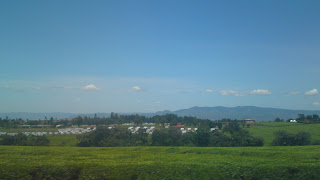 Tea farm, Kericho. Farm workers' houses in mid-ground
Tea farm, Kericho. Farm workers' houses in mid-ground Kericho town
Kericho town Kapsoit Junior, Kericho.
Kapsoit Junior, Kericho. Sun setting over Kopere hills
Sun setting over Kopere hills Road to Oneno-nam Primary school
Road to Oneno-nam Primary school Tangy mangoes in Songhor
Tangy mangoes in Songhor Maize, sugar farm near Kopere hills
Maize, sugar farm near Kopere hills Sugar harvesting
Sugar harvesting Chemelil Sugar factory
Chemelil Sugar factory Sugar fields. Kopere and Songhor hills in the back ground
Sugar fields. Kopere and Songhor hills in the back ground Sugar on its way to Chemelil Sugar
Sugar on its way to Chemelil Sugar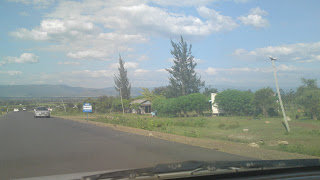 Turning at Awasi. A much better road
Turning at Awasi. A much better road Nyando river
Nyando river Rice field in Ahero
Rice field in Ahero Some of the lakeside eateries. A mbuta with kuon will set you back Ksh850
Some of the lakeside eateries. A mbuta with kuon will set you back Ksh850 The former Lake Victoria now disappearing under hycanith
The former Lake Victoria now disappearing under hycanith
 I hadn't realised Cittihopa operates outside Nai
I hadn't realised Cittihopa operates outside Nai Kondele
Kondele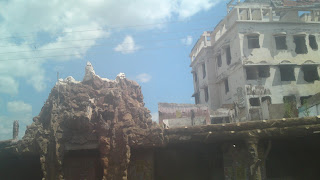 A K-city momento from PEV
A K-city momento from PEV Approach to K-city and Lake Victoria
Approach to K-city and Lake Victoria
 Another river. Whose name I've forgotten...
Another river. Whose name I've forgotten... Kakamega
Kakamega Sunday worship. Malava-style
Sunday worship. Malava-style Sugarcane transporter. The faster truck/lorry carrier is yet to be introduced.
Sugarcane transporter. The faster truck/lorry carrier is yet to be introduced. The unslick road to Kakamega
The unslick road to Kakamega Sugar growing in Webuye. Mt Elgon is in the background
Sugar growing in Webuye. Mt Elgon is in the background Livonda winter resort...
Livonda winter resort... The shut Panpaper needs to urgently re-open. It employs 35,000 directly and 80,000 indirectly in Webuye.
The shut Panpaper needs to urgently re-open. It employs 35,000 directly and 80,000 indirectly in Webuye. Turbo- on market day
Turbo- on market day Some river-whose name I've forgotten
Some river-whose name I've forgotten Sirikiwa, the hometown of the noisy Ruto, only place a noticed had more grasshuts than mabati houses
Sirikiwa, the hometown of the noisy Ruto, only place a noticed had more grasshuts than mabati houses Eld has grown fast since I was there some 7 years ago
Eld has grown fast since I was there some 7 years ago Heavy traffic in Eld.
Heavy traffic in Eld. At least you can't miss the sign-post
At least you can't miss the sign-post Turning to m-o-1 university
Turning to m-o-1 university Burnt Forest. Notice the charred remains of one of its tallest buildings.
Burnt Forest. Notice the charred remains of one of its tallest buildings. Maize ready for harvest
Maize ready for harvest The rolling valleys of Londiani
The rolling valleys of Londiani The bane of every driver. 1kph trailers
The bane of every driver. 1kph trailers For some, PEV is still a reality. IDPs still waiting to be settled.
For some, PEV is still a reality. IDPs still waiting to be settled. Mau Summit. Notice the obiqitous Safcom mass
Mau Summit. Notice the obiqitous Safcom mass Rolling plains of Molo
Rolling plains of Molo Sachngwan memorial
Sachngwan memorial Uber-slick approach road to Nakuru town centre
Uber-slick approach road to Nakuru town centre
 Delamere farm with antelopes. While we are fighting over 2 acre holdings, this dude owns land stretching some 10km!
Delamere farm with antelopes. While we are fighting over 2 acre holdings, this dude owns land stretching some 10km! Early commuters on the slick Naivasha/Nakuru road
Early commuters on the slick Naivasha/Nakuru road Beautifully green Mathira
Beautifully green Mathira

